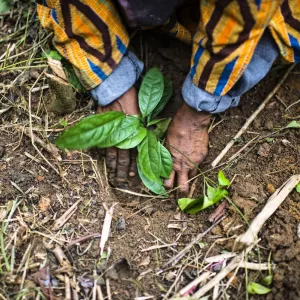How healthy soils can address the climate crisis
Although agriculture is highly vulnerable to climate change, it is also a significant contributor to the climate crisis. The sector generates approximately one fifth of global greenhouse gas emissions –through unsustainable land use practices, widespread deforestation, high rates of food loss and waste and growing dependence on fossil fuels. While much of our response to climate change has focused on

How healthy soils can address the climate crisis
Although agriculture is highly vulnerable to climate change, it is also a significant contributor to the climate crisis. The sector generates approximately one fifth of global greenhouse gas emissions –through unsustainable land use practices, widespread deforestation, high rates of food loss and waste and growing dependence on fossil fuels.
While much of our response to climate change has focused on helping farmers adapt, we also need to mitigate the negative environmental impacts of unsustainable agricultural practices, encourage farmers to adopt more sustainable modes of production and ensure they become an integral part of climate-related solutions.
Healthy soils should be a critical focus of these efforts. Soils play a major role in global climate processes through their regulation
Photo credit: Ollivier Girard/CIFOR

